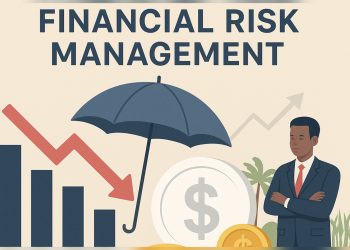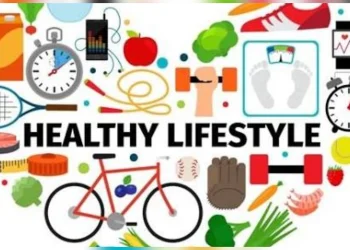The majority of people will consciously try to avoid foods linked to cancer risks, given that cancer is the primary cause of death globally.
The risk of developing certain types of cancer can be increased by eating certain foods. For this reason, eating a balanced diet and avoiding foods linked to cancer are advised. i.e., carcinogenic foods, for the utmost care of the body.
Generally, to reduce our risk of developing cancer, we should be aware of the foods that have been linked to the disease. By consuming a wide variety of nutrient-dense foods, we can largely lower our risk of developing cancer.
Thus, it’s necessary to have a notion about cancer, a healthy diet, and cancer prevention tips. Cancer is a potential group of diseases that occurs when abnormal cells start growing uncontrollably and expanding to other parts of the body.
Occasionally, it occurs when there’s a mutation in the cells or mistakes in the activities of the cells, making them cancerous. In short, people should be aware of which foods can cause cancer.
Alcohol
There are attestations that alcohol increases the risks to the pancreas, prostate, liver, bowel, breast, throat, and oesophagus. This is a result of alcohol containing a substance called acetaldehyde.
Because of this, when consuming alcohol, the chemical breaks down in the body and damages some of the body’s cells’ DNA, making them cancerous. Your risk of developing cancer decreases with your alcohol consumption. Wine and beer are examples of alcoholic drinks.
Processed meat
Preservatives, such as nitrates, are chemically to processed meat to extend its shelf life. It makes them have the characteristics necessary to cause cancer. Since they can be affordable and flavorful, it makes them suitable for people to consume.
It increases the risk of breast, stomach, and colorectal cancer. Deli meat, hot dogs, and bacon are examples of processed meats.
Canned foods
Because most cans are coated with the chemical BPA, foods that increase the risk of developing cancer are linked to canned foods. This chemical releases its acidity into the body system. The majority of people still eat most foods since canning has made them easier and more economical.
Sugary drinks
Since artificially sweetening juices, sodas, and other sweetening beverages are consumed more often than they used to be, this has been known to pose an increased risk of obesity. Correspondingly, cancer is known to be strongly associated with obesity.
The risks of various cancers, such as those of the pancreas, oesophagus, bowel, kidney, liver, and breast, increase when one’s weight exceeds that of a normal and healthy person.
Based on the results, consuming 100 millilitres more sugary food per day can increase the risk of breast cancer by 22% and the risk of overall cancer by 18%.
Artificial sweeteners
Artificial sweeteners are substances that have undergone chemical consolidation. Even though research suggests that sweeteners may not pose a serious risk to humans, they cause bladder cancer in rats.
Fried foods
Because fried foods contain acrylamide, eating a lot of fried food raises your risk of developing cancer. Since fried foods are cooked at high temperatures, acrylamide is formed.
One possible effect of acrylamide is that it can change the DNA of body cells. Cooking food at low temperatures is important, even though the risk is too small to be harmful.
Dairy foods
Altogether, studies have shown that some dairy products can be associated with an increased risk of cancer. It has been discovered that certain dairy products have low risks of colorectal cancer and high risks of prostate cancer.
According to recent research, individuals who regularly consume dairy products are more likely to develop breast and liver cancer.
Red meat
The main causes of cancer are probably veal, lamb, and beef. Cooking red meats at high temperatures releases chemicals, which is why there is a connection between them and bowel and colorectal cancer.
However, red meats are carcinogenic because they produce heterocyclic amines when they are at high temperatures.
Starchy food
There is evidence linking cancer to a high-reduction diet of refined carbohydrates or starchy foods. This is due to the possibility that starchy foods will result in type 2 diabetes, therefore resulting in ovarian, breast, and uterine cancer. Avoid foods like cakes, pasta, white bread, cereals, and so on.
Hydrogenated oil
Given that oil contains trans fat, which can result in cancer, vegetable oils, for example, are high in unhealthy omega-6 fats due to chemical processing. Trans fats are the leading cause of cancer and heart failure problems.
Salt
High salt consumption is one of the leading causes of cancer. Because sodium is in salts, an excess of sodium can cause stomach cancer by damaging the gastric mucus.
While some of these foods have little evidence that they are linked to cancer, other foods like processed foods and canned meat have much more evidence to prove it. They are among the high-carcinogenic foods.
Healthier food alternatives to prevent cancer
Unfortunately, there are no foods that can prevent cancer. Eating healthy will reduce the risk of developing cancer.
Plant-based foods are the most effective at preventing cancer. Cancer-fighting foods are frequently plants and high in phytochemicals. Plants contain phytochemicals that can help fight cancer.
Fruits and vegetables
- Berries
- Broccoli
- Garlic
- Ginger
- Pears
- Oranges
- Cauliflower
- Grapefruit
- Spinach
Whole grains
- Oats
- White bread
- White pasta
- Quinoas
- Wild rice
Dairy
- Skimmed milk
- Low-fat cheese
- Soy-based foods
- Nut milk
Beverages
- Green tea
- Water
- Coffee
- Herbal drinks
Proteins
- Fish
- Lentils
- Black beans
- Eggs
Oils
- Canola oil
- Olive oil
However, studies have shown that cooking at high temperatures makes our foods exposed to two main carcinogens: heterocyclic aromatic amines (HCAs) and polycyclic aromatic hydrocarbons (PAHs).
As said earlier, plant-based foods are best for cancer prevention. Cooking at low temperatures, such as steaming, baking, boiling, or broiling, can help reduce the risk of cancer.






